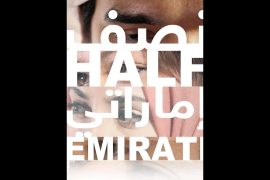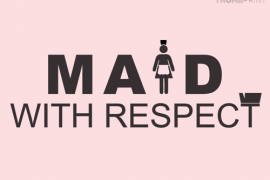Article in brief: The author looks at the reasons why the Arabic language and culture may be at risk and the growing need for its preservation.

Recent headlines in the UAE have been revolving around the need to preserve the Arabic language, as we lose the new generation to the English language and the many popular movies, books, and video games it offers. Much research has been done on this issue, and the general consensus is that the youth are being lured away from learning Arabic, and a study by the Mohammad Bin Rashid Al Maktoum Foundation in partnership with the UN Development Program indicated that preserving the Arabic language means preserving the identity of the society and culture.
Although there is a definite link between language and culture, I think these are issues that need to be addressed separately. Firstly, if we look at the use of the Arabic language, I have to agree with the recent reports that it is at risk of becoming a foreign language.
For instance, there are some private schools here in the UAE which don’t teach Arabic as a mandatory subject, and expatriate students have the option of choosing Arabic versus French. I disagree with this idea, and believe that Arabic should be mandatory for all students in the UAE. While it’s crucial to upkeep the level of English to ensure that the UAE remains bilingual, it’s also important that the country’s first language is also preserved and taught to the people from all over the world who choose to live here.
On the other hand, if we look at preserving the culture, we have to look beyond the issues of language alone. We have to look at what our culture is made of, and how do we share that with the expatriate community. As an example, the Islamic tradition, “Hag el Laila”, is a celebration to mark the arrival of Ramadan, where children dress in traditional clothes and visit their neighbors and family to collect sweets and treats. How many expatriates can say that they know about this tradition?
In the last few years, some companies have been acknowledging this occasion and handing out sweets to their employees, but this is still a tradition that is largely unknown. Back in my school days, we never celebrated it, but then if we look at its counterpart, Halloween, the whole country gears up for it. Another example is Eid, which is celebrated by all Muslims in their homes, but elsewhere, it is not really acknowledged except in mall sales and restaurant specials.
Here is another example: when I was back in school, we didn’t do anything for Eid with the other students, but when it was time for Christmas, we would all be exchanging gifts and greeting cards. And this was back in the early 90s when Dubai was not half the cosmopolitan city it is today, so yes, there is a huge risk of the culture being lost, together with the Arabic language.
I understand it is all part of globalization, and it is important to embrace other cultures and traditions, but it is equally vital to take pride and share the local culture with others. The UAE being a cosmopolitan city with its expatriate majority has made English its first language, but it is also up to the UAE to encourage the use of Arabic, so that one of the oldest languages in the world does not get lost in this global city. It should be a two way street, where the local society promotes the integration of the Arabic language and culture to its expatriates, and they, in return, immerse into the society that they have chosen to live in. Only by doing so, the Arabic language and culture can be preserved.
Click here for part 2 of this article.
References:
- Roberta Pennington (December 8, 2014). “English Language ‘Seducing’ UAE Pupils”. The National. Retrieved 12 March 2015. http://www.thenational.ae/uae/english-language-seducing-uae-pupils




I do believe the author, if a nation is ignorant of it's culture and tradition, it will create a division among communities, or worse among family members. It is the local government responsibility to promote their native language in daily conversation and writings, but they should also be open to the world about learning other things.
I agree, we should promote our language/culture and remain open to learning new cultures. We can only learn and grow from the diversity we have in the UAE. Thank you for your feedback.
The Local population is too small to sustain the arabic language. Therefore there are only two solutions to safe keep the language.1) Arabic must be a compulsory subject Language to be learned and taught in ALL Schools (Private and Non) from Kindergarden onwards.
2) The Expat population needs to be Majority Arab. At least 65% Arab. If the Arab population in the country is higher, promoting the language will be easier in the work place and in communities…
The Author needs to do more research and offer solutions like the two points I have mentioned otherwise its just another article about the Arabic language without a base which we see daily in newspapers.
I totally agree with your first solution and this was also suggested in my article. My focus was also on sharing our culture/traditions, as there seems to be a lack of exchange in this regard. I believe creating awareness is just as important, which is what I hoped to do here. Thank you for your feedback.